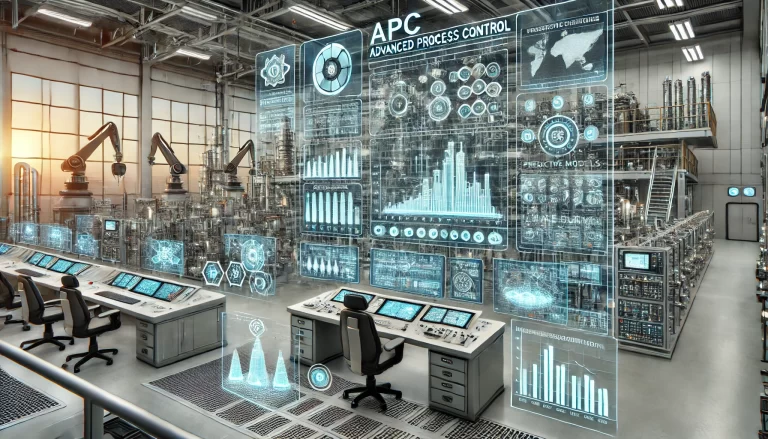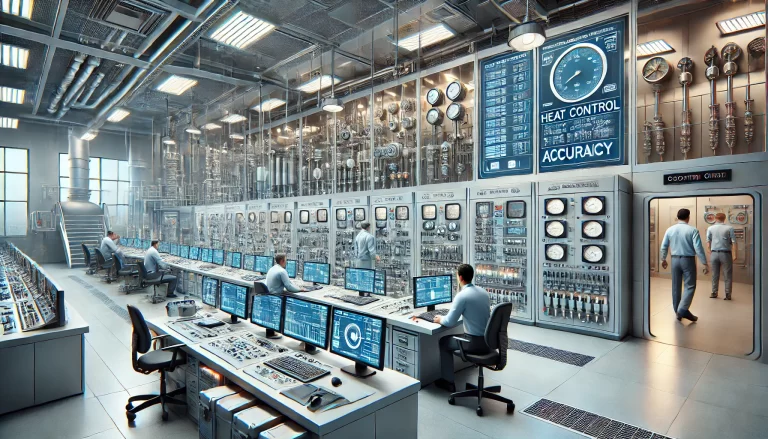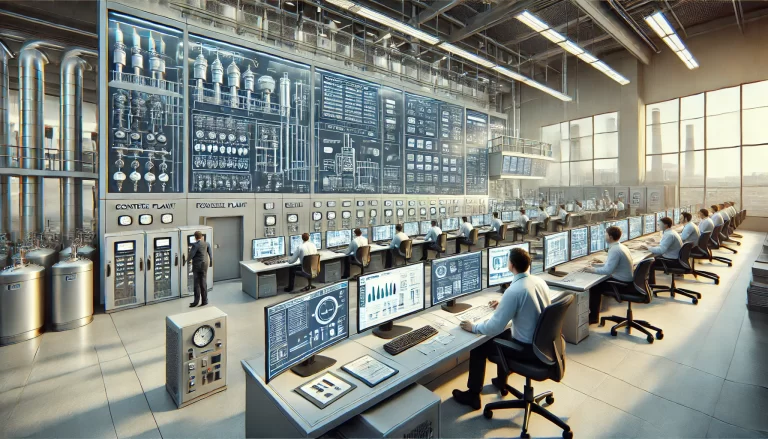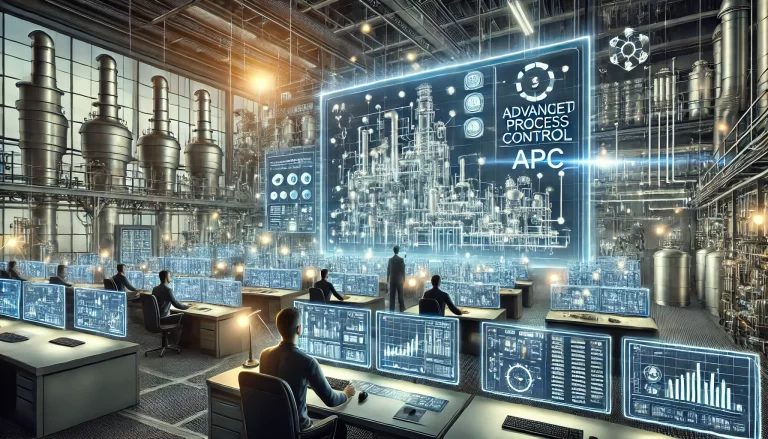The Instrumentation and Control (I&C) specialty within the Electrical, Mechanical, and Instrumentation Department primarily involves managing and maintaining instrumentation devices (such as measuring and analyzing instruments) and control systems (including DCS, SIS, GDS, CCS, and PLC). This article outlines the main duties, work environments, and skill requirements for professionals in this field.

I. Work Responsibilities
1. Equipment Management and Maintenance
One of the primary responsibilities of I&C professionals is ensuring the proper functioning of various field instruments such as pressure transmitters, temperature sensors, flow meters, and level transmitters. These instruments must be regularly inspected, maintained, and repaired to ensure accurate measurement and stable operation. Additionally, the maintenance of automatic control systems like Distributed Control Systems (DCS), Programmable Logic Controllers (PLC), and other control systems is crucial for the smooth operation of industrial processes. These professionals are expected to quickly address system faults, alarms, and other technical issues that could disrupt production.
Key tasks:
- Routine inspection and calibration of measurement instruments.
- Troubleshooting and repairing equipment to ensure precise and reliable data collection.
- Maintaining control systems (DCS, PLC, etc.) to ensure they operate smoothly and handle any system faults promptly.

2. System Monitoring and Control
I&C professionals are responsible for monitoring critical production data, such as temperature, pressure, flow, and level, through instrumentation. These real-time data are essential for adjusting and controlling processes automatically based on pre-set parameters and process requirements. This helps maintain a stable production environment and ensures high product quality. In addition, these professionals manage the interlock protection systems, which automatically intervene when process parameters exceed safe limits or when equipment failure occurs, ensuring the safety of the production environment.
Key tasks:
- Continuous monitoring of process parameters through instrumentation data.
- Adjustment of control settings to optimize the process based on real-time data.
- Managing emergency interlocks to prevent accidents in case of system failures.
3. Project Implementation and Technical Support
I&C professionals also play a key role in new construction projects, plant expansions, and technological upgrades. Their duties include system design reviews, equipment selection, and installation, as well as commissioning and system integration. Furthermore, they support ongoing optimization and technical upgrades of I&C systems to enhance automation and improve operational efficiency. These professionals often provide technical training and support to production teams, ensuring that they are proficient in handling instrumentation and control systems.
Key tasks:
- Involvement in system design, installation, and commissioning for new and upgraded facilities.
- Continuous optimization of I&C systems for improved efficiency and automation.
- Providing technical support and training to production and maintenance teams.

II. Work Environments
I&C professionals work in diverse environments, each with its unique challenges and safety considerations.
1. Field Instrumentation Areas
Fieldwork is often conducted in hazardous industrial environments, such as chemical plants, tank farms, and production facilities. In these areas, I&C professionals are tasked with installing, calibrating, and maintaining various instruments. They may need to work at height, climb ladders, or enter confined spaces such as pipes and trenches. These environments can be physically demanding and may involve exposure to high temperatures, corrosive substances, toxic chemicals, and other safety risks.
2. Control Rooms
In contrast to the field, control rooms provide a more controlled environment where I&C professionals monitor and manage the operations of production systems. These rooms house the central control systems, such as DCS and PLC, and serve as the command center for real-time operations. While the physical environment is more comfortable than the field, the work here requires intense focus and attention to detail, as the professionals need to ensure the system operates correctly and intervene in case of system errors or failures.
3. Instrumentation Equipment Rooms
These rooms store various instrumentation devices, spare parts, and testing equipment. I&C professionals are often required to calibrate, repair, and manage instrumentation here. Familiarity with the operation, maintenance, and troubleshooting of a wide range of instruments is essential for professionals working in these rooms.

III. Skill and Knowledge Requirements
To excel in the I&C field, professionals must possess a combination of specialized knowledge, technical skills, and problem-solving abilities.
1. Technical Knowledge
A solid foundation in automation and control principles is critical. Professionals should be proficient in understanding and working with key control systems (DCS, PLC), sensors, and process control systems. Knowledge of instrumentation principles, sensor technologies, and process control engineering is also necessary for ensuring the accuracy and efficiency of industrial processes.
Key areas of expertise:
- Understanding of DCS, PLC, and other control systems.
- Knowledge of sensor technologies and their application in industrial settings.
- Familiarity with process control systems and their integration into production environments.
2. Hands-On Skills
I&C professionals must be skilled in the use of a variety of instruments and diagnostic tools. These include common testing equipment like multimeters, oscilloscopes, and signal generators. Proficiency in the installation, calibration, and troubleshooting of instruments is also critical. Additionally, skills in configuring and programming DCS and PLC systems are essential for optimal system performance and troubleshooting.
Key skills:
- Proficient use of measurement and testing tools (e.g., multimeters, oscilloscopes).
- Expertise in the installation, calibration, and maintenance of various instruments.
- Ability to configure, program, and troubleshoot DCS and PLC systems.

3. Problem-Solving and Troubleshooting
I&C professionals must be able to quickly identify and diagnose faults in instrumentation and control systems. When problems arise, they must analyze the situation efficiently and implement effective solutions to minimize downtime and maintain operational continuity.
Key problem-solving abilities:
- Rapidly identifying the root cause of equipment malfunctions.
- Implementing effective repair and corrective actions to restore functionality.
- Ensuring continuous operation of systems by preventing future issues.
Conclusion
The role of I&C professionals is vital to ensuring the accurate measurement, control, and optimization of industrial processes. Their expertise in managing instruments and control systems is critical for maintaining safety, efficiency, and product quality. Given the challenging and dynamic work environments they face, a strong combination of technical knowledge, hands-on skills, and problem-solving abilities is necessary for success in this field.
